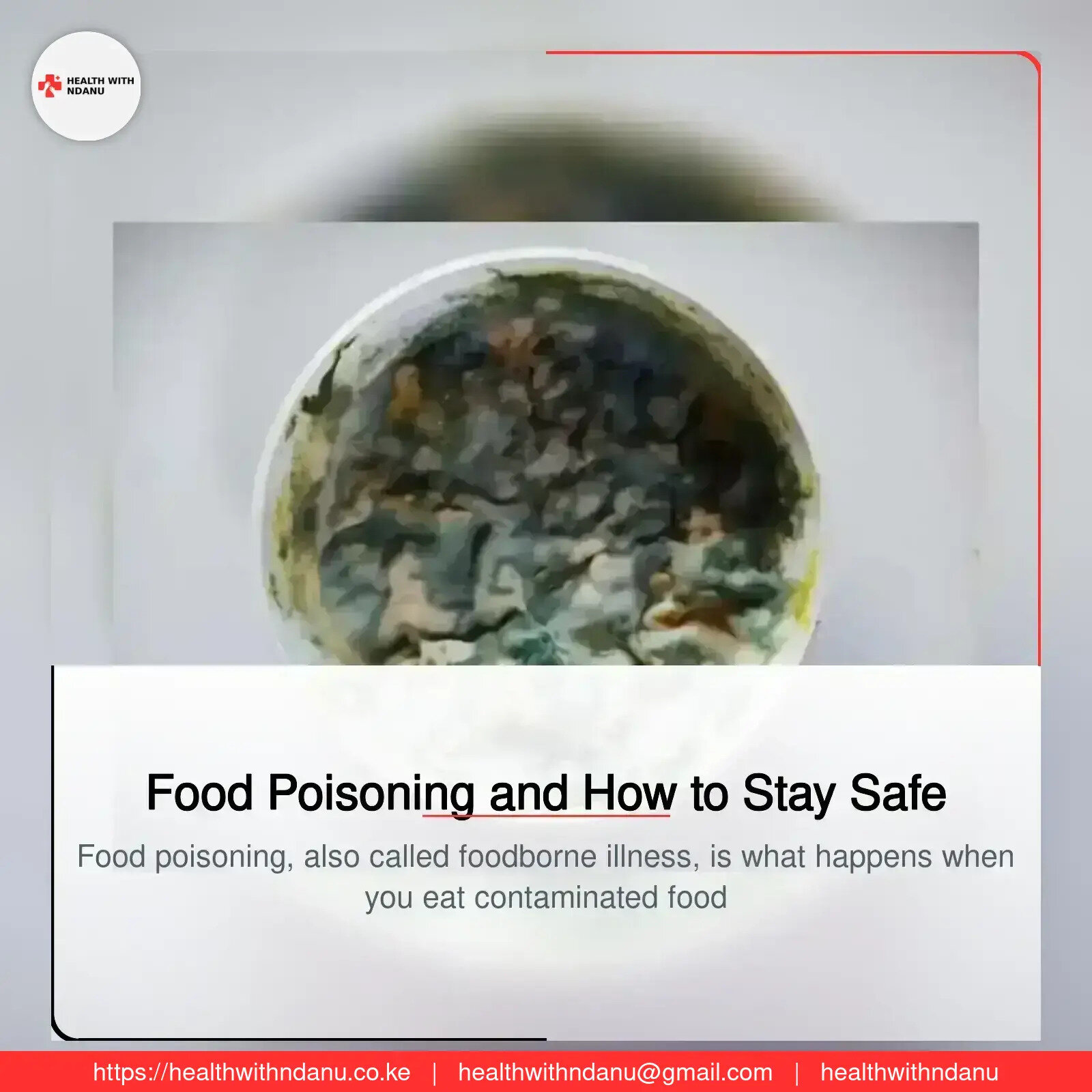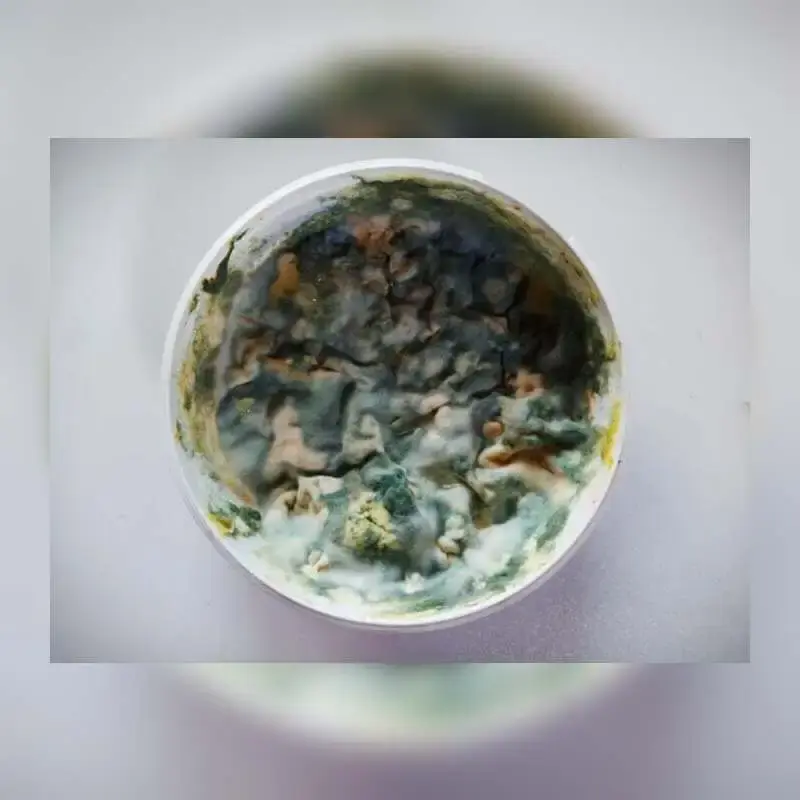Food Poisoning and How to Stay Safe
- by Diana Ndanu
- 23 January, 2025
- 0 Comments
- 6 Mins



Introduction
Hey there! Let’s talk about something none of us want to experience but probably have at some point: food poisoning. You know that awful feeling after eating something that doesn’t sit right? That’s food poisoning, and it can be a total nightmare. But what exactly is it, why does it happen, and how can you prevent it? Stick around because I’m breaking it all down for you in a conversational and easy-to-understand way.
What is Food Poisoning?
Food poisoning, also called foodborne illness, is what happens when you eat contaminated food. It’s caused by harmful bacteria, viruses, parasites, or toxins that sneak into your meals. The symptoms can range from mild discomfort to severe health issues, depending on the type and amount of contamination.
The tricky part? Food poisoning can hit anyone, anytime, and anywhere—whether you’re dining out at a fancy restaurant, grabbing fast food, or even eating at home. The good news is that it’s usually preventable if you know what to look out for and how to handle food safely.
Common Causes of Food Poisoning
So, what’s behind food poisoning? Let’s get into the nitty-gritty of what might be lurking in your food.
1. Bacteria
Bacteria are some of the most common culprits:
- Salmonella: Found in raw or undercooked poultry, eggs, and unpasteurized milk.
- E. coli: Often linked to undercooked beef and contaminated vegetables.
- Listeria: Can hide in deli meats, soft cheeses, and unpasteurized dairy products.
2. Viruses
- Norovirus: Sometimes called the “stomach flu,” it’s highly contagious and can spread through contaminated food or surfaces.
- Hepatitis A: Can contaminate raw or undercooked shellfish and produce.
3. Parasites
- Toxoplasma: Often found in undercooked meat, especially pork.
- Giardia: A parasite found in untreated water or food washed with contaminated water.
4. Toxins
- Botulism: A rare but serious condition caused by improperly canned or preserved foods.
- Staphylococcus aureus: Found in foods left at room temperature for too long.
Symptoms of Food Poisoning
Now, how do you know if you’ve got food poisoning? Symptoms can vary depending on the cause, but here’s what to watch for:
- Nausea and Vomiting: The body’s way of expelling harmful substances.
- Diarrhea: Common and often severe, leading to dehydration.
- Stomach Cramps: Painful but usually temporary.
- Fever and Chills: Your body fighting off the infection.
- Headaches and Weakness: Signs of dehydration or toxin exposure.
Symptoms can appear within hours or take days to show up, depending on the type of contamination. If you’re experiencing severe symptoms like blood in your stool, high fever, or persistent dehydration, it’s time to see a doctor.
How is Food Poisoning Diagnosed?
Diagnosing food poisoning usually involves:
- Symptom Check: Your doctor will ask about what you ate, when symptoms started, and how severe they are.
- Stool or Blood Tests: To identify bacteria, viruses, or parasites.
- Food History: Sometimes, figuring out what caused the issue is as simple as recalling your last meal.
In most cases, food poisoning is mild and doesn’t require a visit to the doctor. However, severe cases need medical attention to prevent complications.
Treatment for Food Poisoning
The good news? Most food poisoning cases resolve on their own within a few days. But that doesn’t mean you should just suffer through it. Here’s how you can ease the discomfort:
1. Stay Hydrated
- Why? Vomiting and diarrhea can leave you dehydrated.
- How? Drink water, clear broths, or oral rehydration solutions. Avoid sugary drinks and alcohol, which can worsen dehydration.
2. Rest
Give your body the time it needs to heal. Resting helps your immune system focus on fighting off the infection.
3. Eat Light
Stick to bland, easy-to-digest foods like bananas, rice, applesauce, and toast (BRAT diet). Avoid greasy, spicy, or dairy-heavy foods until you’re feeling better.
4. Medications
Over-the-counter remedies like loperamide (Imodium) can help manage diarrhea but should be used cautiously.
Antibiotics are sometimes prescribed for bacterial infections, but they won’t help with viral food poisoning.
When to Seek Medical Help
If you experience severe dehydration, persistent symptoms, or unusual symptoms like blurred vision or difficulty swallowing, get professional medical help immediately
How to Prevent Food Poisoning
Prevention is always better than cure, right? Here’s how to minimize your risk of food poisoning:
1. Practice Good Hygiene
- Wash your hands before and after handling food.
- Clean cutting boards, knives, and other utensils after each use.
2. Cook Food Properly
- Use a food thermometer to ensure meats are cooked to a safe internal temperature.
- Reheat leftovers to at least 165°F (74°C).
3. Store Food Safely
- Keep perishable foods refrigerated at or below 40°F (4°C).
- Don’t leave cooked food out for more than two hours.
4. Be Careful with Raw Foods
- Wash fruits and vegetables under running water.
- Avoid consuming raw eggs, seafood, or unpasteurized dairy products.
5. Pay Attention to Expiry Dates
Check food labels for expiration dates, and discard anything that’s past its prime.
Who is Most at Risk for Food Poisoning?
While food poisoning can affect anyone, some people are more vulnerable:
- Young Children: Their immune systems are still developing.
- Pregnant Women: Certain bacteria like Listeria can harm both mother and baby.
- Elderly People: Aging weakens the immune system.
- People with Chronic Conditions: Diabetes, cancer, or HIV can make it harder to fight infections.
Living with Food Poisoning: What to Expect
Recovery from food poisoning typically takes a few days, but severe cases might take longer. Here’s what you can do to bounce back:
- Ease Back Into Eating: Start with light, bland foods and gradually reintroduce your regular diet.
- Stay Hydrated: Keep drinking fluids to replenish lost electrolytes.
- Take It Easy: Avoid overexertion while your body recovers.
FAQs About Food Poisoning
1. Can food poisoning kill you?
Severe cases can be life-threatening, especially for high-risk groups, but most people recover fully.
2. How long does food poisoning last?
Mild cases last 1–3 days, while severe cases can take a week or longer.
3. Is food poisoning contagious?
Some types, like norovirus, can spread from person to person, so it’s essential to practice good hygiene.
4. Can you get food poisoning from leftovers?
Yes, if leftovers are not stored or reheated properly, they can harbor harmful bacteria.
Final Thoughts
Food poisoning isn’t just a minor inconvenience—it can be a serious health issue if not handled properly. By understanding its causes, symptoms, and prevention methods, you can significantly reduce your risk and enjoy your meals with peace of mind.
Have any food safety tips or stories about your own experience with food poisoning? Share them in the comments below. Let’s keep the conversation going and help each other stay safe and healthy!
Got Your Own Experience? Share with us
Popular Categories
Most Visited Blogs
Daily Newsletter
Get all the top stories from Blogs to keep track.



